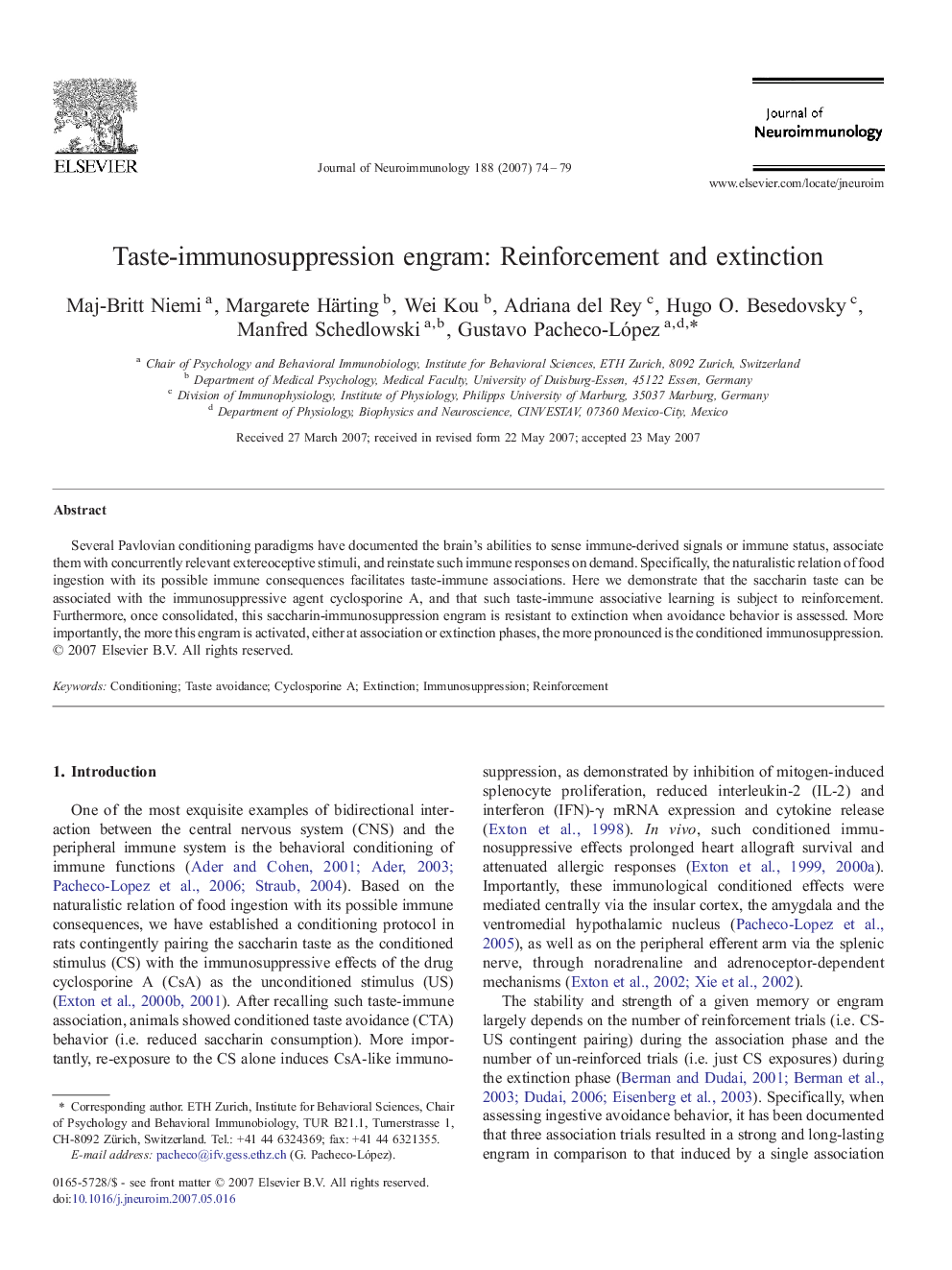| Article ID | Journal | Published Year | Pages | File Type |
|---|---|---|---|---|
| 3065545 | Journal of Neuroimmunology | 2007 | 6 Pages |
Several Pavlovian conditioning paradigms have documented the brain's abilities to sense immune-derived signals or immune status, associate them with concurrently relevant extereoceptive stimuli, and reinstate such immune responses on demand. Specifically, the naturalistic relation of food ingestion with its possible immune consequences facilitates taste-immune associations. Here we demonstrate that the saccharin taste can be associated with the immunosuppressive agent cyclosporine A, and that such taste-immune associative learning is subject to reinforcement. Furthermore, once consolidated, this saccharin-immunosuppression engram is resistant to extinction when avoidance behavior is assessed. More importantly, the more this engram is activated, either at association or extinction phases, the more pronounced is the conditioned immunosuppression.
